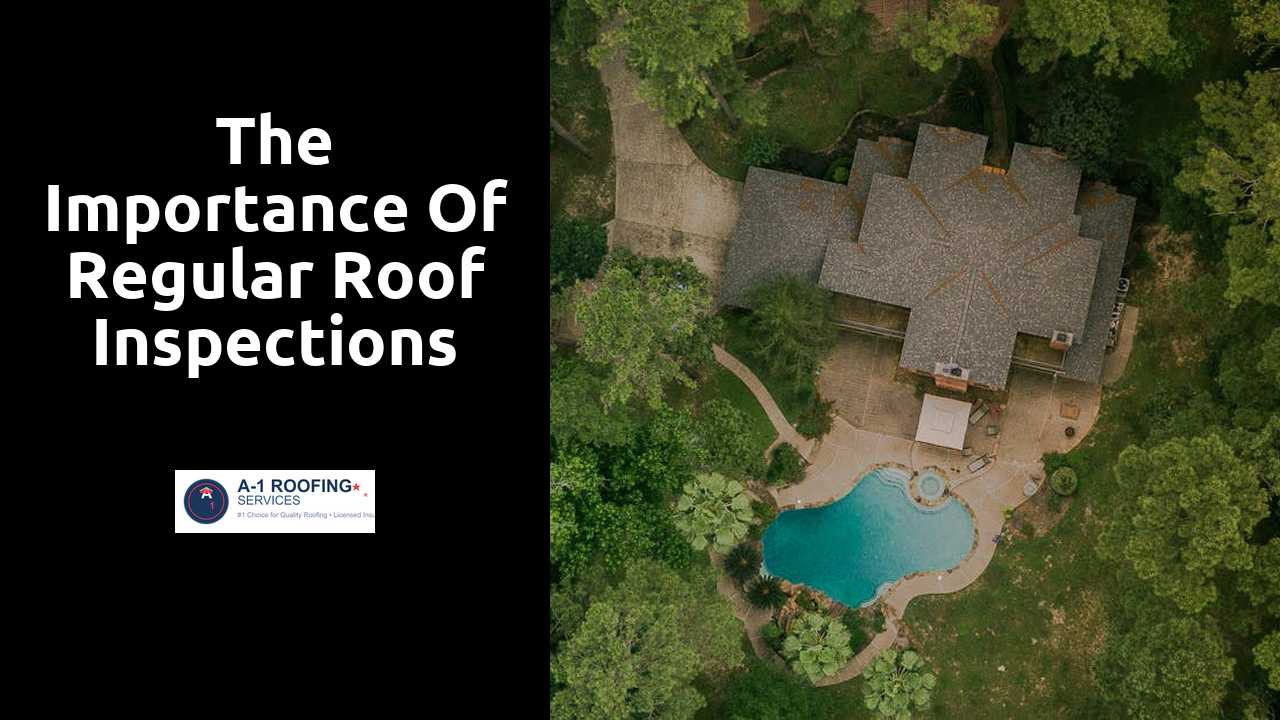
The Importance of Regular Roof Inspections
Table Of Contents
The Role of Professional Inspectors
Professional inspectors play a crucial role in maintaining the integrity and longevity of roofs. They bring specialized knowledge and experience that enables them to identify potential issues that may not be visible to the untrained eye. This expertise is essential for both residential and commercial properties, as it helps in understanding the unique needs of various roofing materials and systems. With their keen attention to detail, inspectors can pinpoint problems such as leaks, faults in installation, or signs of wear that could lead to more significant damage if not addressed promptly.
Their assessments often include comprehensive inspections that evaluate not just the roof itself but also related components such as gutters, flashing, and ventilation systems. This holistic approach ensures that all aspects of roof health are thoroughly examined. A professional inspector not only identifies existing issues but also provides valuable recommendations for maintenance and repairs. Homeowners and property managers benefit from these insights, which enable informed decisions regarding upkeep, budgeting, and long-term planning for roof care.
Navigate to this website to learn more.
Qualifications and Expertise to Look For
When searching for a qualified roof inspector, credentials should be a primary consideration. Look for professionals who are certified by recognized organizations, such as the National Roofing Contractors Association or the International Association of Certified Home Inspectors. These certifications demonstrate a commitment to ongoing education and adherence to industry standards. Additionally, relevant experience matters. Inspectors with years in the field will likely have encountered a variety of roofing issues and can better identify potential problems specific to your roof type.
Another important facet is knowledge of local building codes and regulations. A good inspector should not only be familiar with general roofing practices but also understand specific requirements within your area. This knowledge can prevent future complications and ensure the safety and longevity of your roof. References and reviews provide further insight into an inspector's reliability and effectiveness. Ask for testimonials from previous clients or check online ratings to ensure you’re selecting someone with a solid reputation in the community.
Cost Considerations for Roof Inspections
Understanding the financial aspects of roof inspections is essential for homeowners. The cost can vary widely depending on several factors, including the complexity of the roof’s design and the specific areas being assessed. Basic inspections might fall into a lower price range, while comprehensive evaluations that include additional services, such as historical documentation or infrared imaging, can lead to higher expenses.
Planning for these costs should ideally be a part of a homeowner's annual budgeting. Setting aside funds for regular inspections can prevent unexpected expenses related to roof damage in the future. When maintenance is overlooked, minor issues can escalate into major repairs that are significantly more costly. By incorporating inspection costs into a maintenance budget, homeowners can ensure not only the longevity of their roof but also peace of mind.
Budgeting for Maintenance and Repairs
Planning for maintenance and repairs is essential for homeowners. Regular inspections can identify potential problems before they escalate, ultimately saving money in the long run. Setting aside a budget specifically for roof upkeep helps ensure funds are available when unexpected issues arise. This proactive approach allows homeowners to address minor repairs promptly, rather than facing costly emergency fixes.
Homeowners can allocate their budget based on the age and condition of their roofs. For newer roofs, fewer funds may be necessary, but older roofs often require more frequent assessments and repairs. Creating a schedule for inspections aids in determining how much to set aside each year. This financial foresight enables a smoother process for managing both routine maintenance and any urgent repairs that might occur.
DIY vs. Professional Inspections
Homeowners often consider conducting their own roof inspections to save on costs. A DIY approach allows individuals to familiarize themselves with their roofs and spot visible issues, such as missing shingles or debris accumulation. However, without proper training, it can be challenging to identify underlying problems that aren't immediately obvious. This lack of expertise can result in missed opportunities for early intervention, leading to more significant issues down the line.
On the other hand, professional inspections provide a thorough assessment conducted by trained experts. These individuals have the knowledge to detect subtle signs of wear and damage that may escape the untrained eye. While hiring a professional incurs a fee, it often translates to peace of mind. A detailed report of the roof's condition can inform future maintenance plans and potentially save homeowners from costly repairs that stem from neglected problems.
Pros and Cons of Each Approach
Conducting roof inspections independently can be a cost-effective option for homeowners who possess some skills and knowledge about roofing. By taking this do-it-yourself approach, individuals can save on professional fees and gain a direct understanding of their roof's condition. Routine check-ups can uncover minor issues before they escalate into serious problems, promoting early intervention. However, without the necessary expertise, a non-professional may overlook critical signs of damage or structural problems. This oversight could lead to more significant repair costs down the line.
On the other hand, hiring a professional inspector brings a wealth of experience and specialized knowledge that a homeowner may lack. Trained experts are adept at identifying both visible and hidden issues that might not be apparent to an untrained eye. Their comprehensive assessment often includes the use of advanced tools and techniques, leading to a thorough evaluation. Nonetheless, employing a professional comes with a cost, which may not be feasible for every budget. Balancing immediate expenses with long-term savings from avoided repairs is essential for homeowners considering their options.
Related Links
How to Prepare for a Roof InspectionEssential Checklist for Thorough Roof Inspections